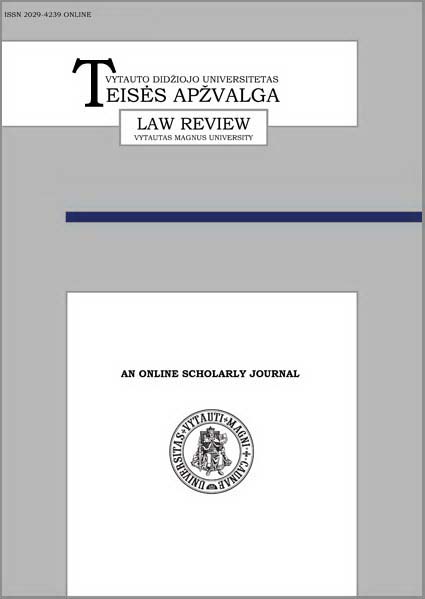Baudžiamojo proceso veiksmų (sprendimų) teisėtumo vertinimas baudžiamajame ir civiliniame procesuose
Evaluation of the Lawfulness of Criminal Proceedings (Decisions) in Criminal and Civil Proceedings
Author(s): Marijus ŠalčiusSubject(s): Law, Constitution, Jurisprudence, Criminal Law, Criminology
Published by: Vytauto Didžiojo Universitetas
Keywords: Criminal procedure; Infringement of criminal procedure; Compensation for damages; Duty to compensate for damages; Law enforcement officer’s and court’s responsibility;
Summary/Abstract: The article analyzes the evaluation of the lawfulness of criminal proceedings (decisions) in criminal and civil proceedings. In the legal regulation of Lithuania there is a strict non-contractual liability of the state, which means that liability of the state raises without the fault of the officers (institutions). The limits of the strict liability are extremely wide. In this context, one of the essential aspects of addressing the issue of compensation for the damage caused by the pre-trial investigation officers, the prosecutor and the court is to strike the right balance between effective criminal proceedings and the protection of the interests of the injured party. The main objective is to ensure that the limits of the non-contractual liability of the state are not unreasonably extended or unreasonably narrowed. The limits of the non-contractual liability of the state also depends on whether the legality of the actions (decisions) of the criminal proceedings is assessed in the same way or differently in the criminal and civil proceedings. It was revealed that the concepts of violation of criminal procedure and the criteria used in the doctrines of criminal procedure law and civil law to determine the illegality of procedural actions do not coincide. The courts also take the position that the legality of the same acts of criminal proceedings in a criminal and civil cases may be assessed differently. However, the article raises doubts as to whether the opposite assessment of the same act (decision) of criminal proceedings, depending on whether it is assessed in criminal or civil proceedings, is reasonable and does not unduly extend the limits of liability of the State. The author doubts whether such case law is not in conflict with the principles of legal stability, consistency and binding nature of final court decisions, does not unbalance the existing hierarchy of courts and division of competence, as well as does not jeopardize effective criminal proceedings.
Journal: Teisės apžvalga
- Issue Year: 2020
- Issue No: 2(22)
- Page Range: 21-39
- Page Count: 19
- Language: Lithuanian

